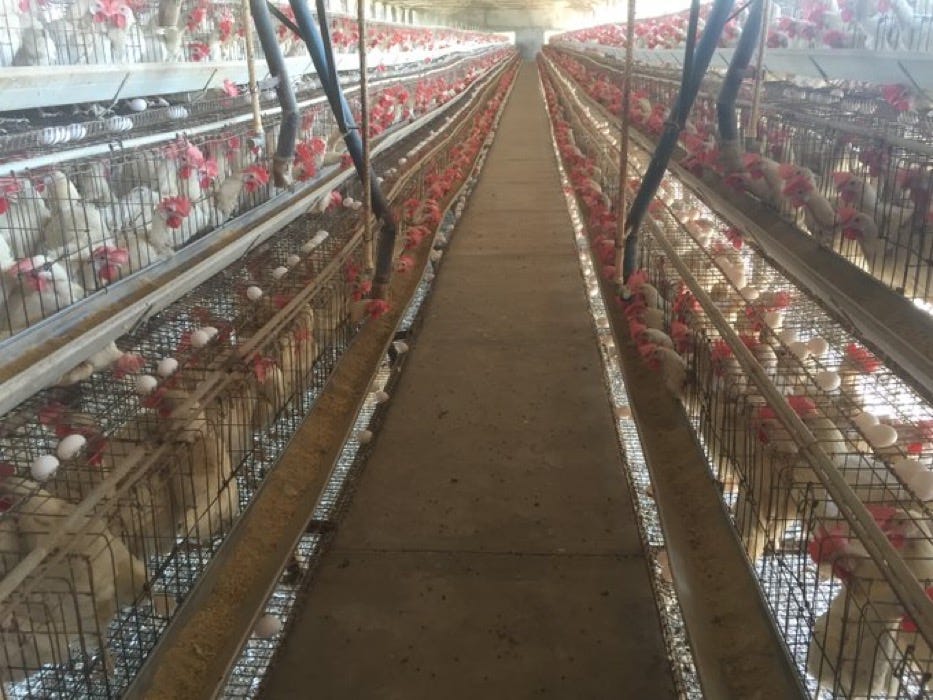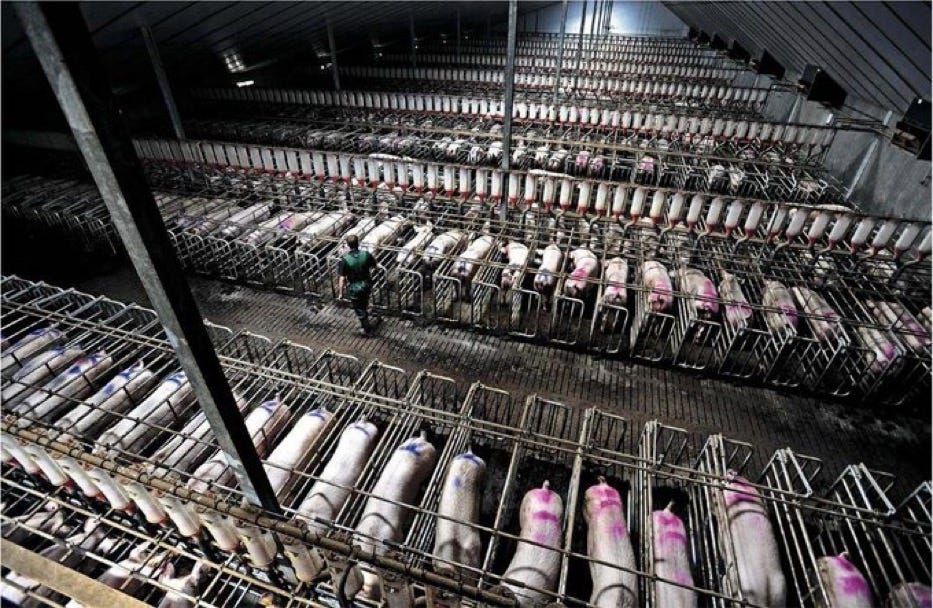Factory farming
another problem to be solved
One of the most pressing issues and hidden problems that literally nobody talks about is factory farming. One reason why the big majority of people don’t know about the real existence of factory farming is that they don’t really want to know. People don’t want to know about what’s happening with this billions of animals because it will make them make choices. They will either acknowledge what happens and stop contributing to the problem of factory farming, in other words, stop consuming anything that comes from a factory farming. This means that they will have to make a big change in their lives since society is not designed for these kind of people and unfortunately common people don’t have a reliable source to know what products actually came from factory farms. People don’t really want to do this, most of them don’t have neither the time nor the resources to make the change they want. Like how far are you willing to go when basically any food in the grocery stores revolves around factory farming. One important thing to notice here is that the diet change is just a consequence of the acknowledgment, not the problem itself. Social change wont occur if people make this problem around the diet, you can stand for this problem regardless of what your diet is (and you should), it’s wrong to make this about the diet. And like, you can definitely do the most good effectively if for instance you donate to the most effective charities trying to stop factory farming (e.g Open Philanthropy), as effective altruism suggests.
One common argument against being contra factory farming is that people will just say that we shouldn’t care about these animals because they aren’t important as we are, and that they are just resources waiting to be used by humans. They will say that since these animals can’t talk, read, etc they aren’t morally significant. But this is obviously wrong, we shouldn’t measure moral significance if the animal in question talks, reasons or reads, what it matters is if they can suffer, as the utilitarian Benthams suggested. And yes, there’s a whole bunch of scientific evidence showing that, yes, animals suffer. They suffer as much as we do. And Dawkins actually has this interesting theory that these animals might even suffer more than we do because they don’t have the rational faculty we have. They can’t rationalise their experience, they can’t tell a story to themselves of how it will be over soon and try to focus on their breathing or something else. So they are just their in the complete present moment just feeling that pain like is endlessly, I imagine, is endless torture.
It’s ironic, because if we look back in the past, it’s clear that moral progress is happening and it’s real. In the past, slavery was widely practiced and people in Ancient Rome would just throw slaves to the arena and watch them being cut to pieces by lions and they would find that amusing. Nowadays this is clearly horrifying and far from acceptable. So with time, yes, humans tend to evolve their moral values. I asked the question of how is it possible that moral progress is happening but we actually see an increase in the practices of factory farming to Michael Huemer. His answer was very compelling. According to Huemer, we didn’t had factory farming in the past, not because we really cared about animal rights, it was because we were less efficient. We never cared more about the interests of animals than we care now. So as scientific progress happened, we’ve discovered ways to have more meat for the least amount of money, we became more economically efficient. But, again, there are several areas in which moral progress happens. For example, slavery, we ultimately did understood how immoral was the way those people were treated. And perhaps the biggest obstacle in people understanding how immoral it is the way these animals are being treated is that they are just way too different from us. In the slavery example, it was easy for the slavers understood how bad that us because they were biologically the same, they were both people. The same happens with women, how women were neglected in the past and deprived of various human rights, they were also people. But the animals aren’t people, they are just way too different from people and this might be indeed the reason why it’s evolving in the opposite direction of moral progress. Not necessarily that it’s taking more time, factory farming is as recent as hundred years old. But it’s definitely stunning how we, humans, were able to manage the suffering of billions of these animals a year.
99.96% of all chickens are factory farmed, this equals 9.2 billion of chickens. These chicken are bred for fast growth and reach their slaughter weight in a very short period, often just five to six week. They are brainless animals, literally pump watches that can explode any minute.
Now, if we completely exterminate factory farming a problem that arises is how we will feed our population. But eventually, I think humans will find a solution to the problem of factory farming and end the immense suffering of all those animals. As Deutsch’s principal of optimism suggests, all evils are due to the lack of knowledge. The evil of factory farming will last precisely as long as we don’t have the knowledge of how to solve it, but problems are soluble. And solutions always comes with new problems, but those are better problems. After eliminating the atrocities of factory farming and successfully preventing the suffering of billions of animals every year, we will have the problem of how to feed ourselves. And as I’m writing this, I might be realising that this is actually not a better problem…Some people defend this view that we should abolish factory farming because they are advocating for getting back in time, often described as a kind of natural state, where where humans live in harmony with nature and every other species. Their argument is what is called of anti humanism. They consider humans this terrible wrong thing in the world, and that those humans will eventually kill the earth and every species. I completely reject whatever they are advocating here. Humans are special, we are definitely special in the sense that we are this unique phenomena in nature that has the ability to change the earth, no other species can change the world. We built our own life support system, of course that Earth gave us the minimum amount of resources for us being able to do this. The life support system of a lion is provided by nature, if one day turns out a lion doesn’t find any prey, then the lion won’t eat. The difference between a hostile environment and a liveable environment is precisely whatever humans change in between (or in other words, knowledge). Degrowth, or environmentalists advocates fail to appreciate this unique thing about humans, we are precisely the only thing that can eventually save the earth. And this has already, we’ve already deviate meteorites from shocking earth.
It’s important to think that there’s a moral question that arises before eliminating the atrocities of factory farming. If we eliminate factory farming then all those animals will stop existing, would their existence be better than nothing? Like how confident can we be that the life of all those animals are so bad that are not worth living? If their lives positive even by a tiny bit then the entire argument to abolish factory farming goes away. Other question is, are their lives so bad that it outweighs whatever we get from them (the entire food supply)? I think the answer to both of these questions are yes, factory farming might be the worst cruelty ever caused by humans. There are pictures 10000x worse than these by the way!



